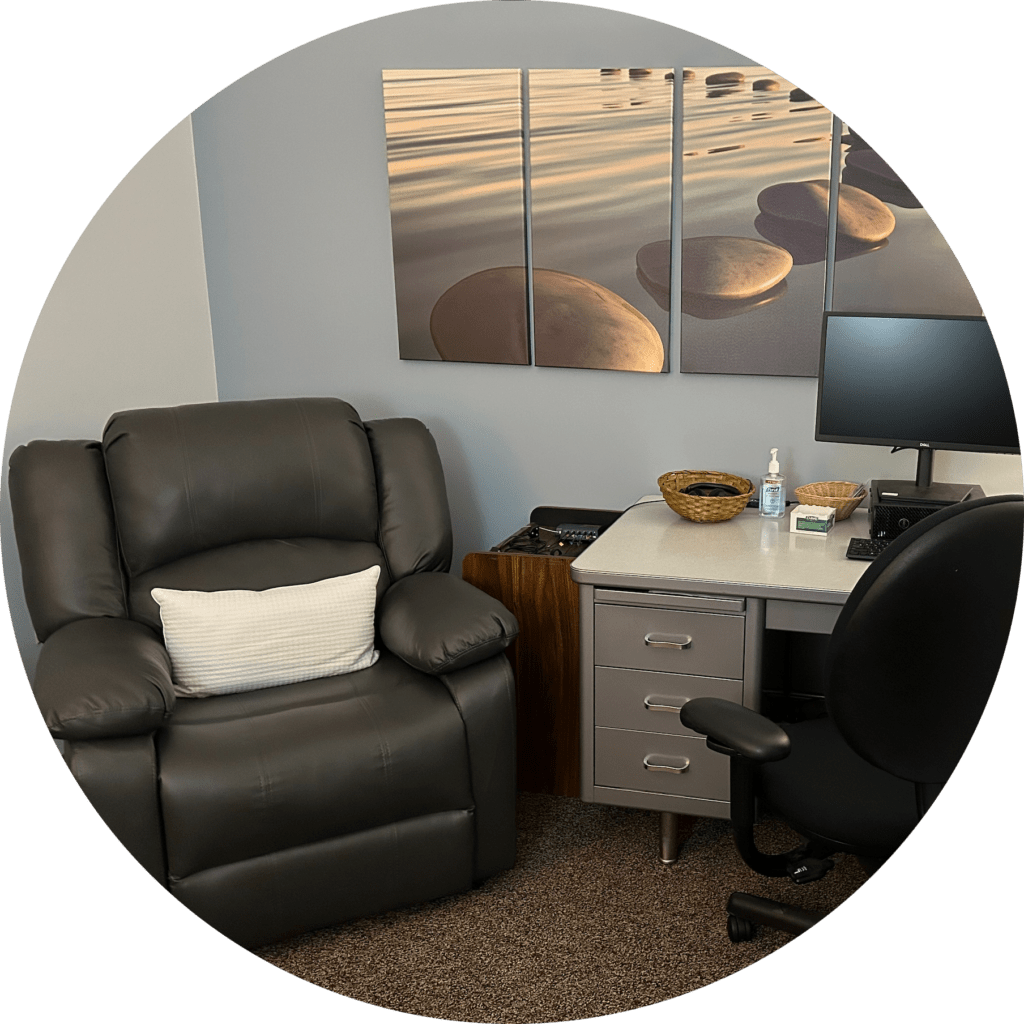Biofeedback (“feedback from the body”) is a form of therapy that brings awareness to how stress impacts the body. Instruments provide immediate information of your response to stress and anxiety and uses the information to help you learn how to modify your reactions.
Clinicians teach various regulating techniques during biofeedback training. These include mindfulness meditation, progressive muscle relaxation, visualization, and breathing exercises.

As with any skill, the more you practice, the more you gain.
Biofeedback has been shown to be helpful in reducing the negative effects of stress and improving mental clarity, self-regulation, and performance-based activities. It can help with a variety of conditions, including but not limited to stress, anxiety, headaches, muscle tension, and pain.
Types of Biofeedback Offered
Thermal biofeedback measures the temperature of your hands with the aim of teaching you to voluntarily create a relaxed state. The more stressed we feel, the colder our extremities tend to get.
Surface Electromyography (sEMG) measures muscle tension and allows you to better influence the activation or relaxation of your muscles. It can be helpful in reducing tension headaches and muscle spasms.
Skin Conductance (SC) measures the sweat gland activity of the surface of the skin, which is sensitive to emotional and cognitive responses. It is useful for identifying stressors and learning to reduce their impact.
Respiratory Biofeedback involves the monitoring of breathing rates and patterns. It can assist you in learning to regulate your breathing.
Heart-Rate Variability (HRV) measures heart-beat intervals and provides feedback of heart rate patterns. It is helpful for increased self-regulation and the reduction of performance-related anxieties.
Interactive Mindfulness Meditation provides self-guided training options based on HRV biofeedback.
Cautions and Contraindications
Biofeedback is considered safe but may not be appropriate for everyone. Those with a medical or mental health condition should check with their health care provider to determine the suitability of the program, prior to its use. Consultation is particularly recommended for the following conditions:
- acute, severe, or unstable medical illness
- neurological conditions (e.g., seizures) and/or severe impairments of memory or attention
- irregularities of heart rhythm (e.g., atrial fibrillation, flutter, or intense clusters of premature atrial contractions)
- significant psychological disorders (e.g., acute psychotic illness, paranoia, severe OCD, or dissociation)
Interested in learning more?
Call CWS at (509) 359-2366 or stop by 225 Martin Hall during our office hours (8AM to 5PM, Monday through Friday) to schedule an appointment with one of our counselors.

